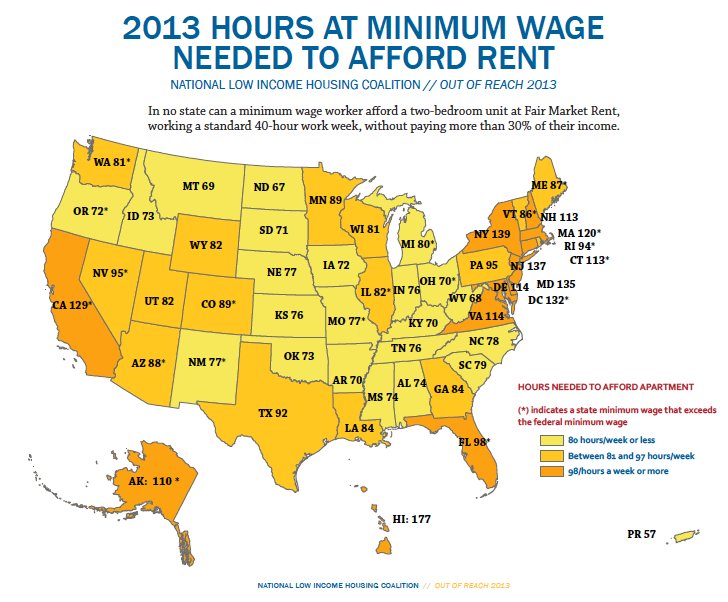If you’re a renter, you’re not imagining it. Baltimore is really expensive, second only to Washington D.C, according to a new report.
The Journal story cites the new “Out of Reach 2013” report from the National Low Income Housing Coalition. The NLIHC determines annually the full-time hourly wage someone must earn to afford an apartment at the Fair Market Rent (or FMR, determined by the U.S. Department of Housing and Urban Development) without spending more than 30 percent of their income on rent.
Read the report here.
Here’s some of the breakdown around two-bedroom apartments for Maryland state:
- The FMR for a two-bedroom apartment is $1,273.
- To afford that, a person must earn at least $50,905, or the equivalent of working 3.4 minimum-wage jobs.
- That equates to 135 hours of work per week, bearing in mind that the NLIHC assumes people will spend no more than 30 percent of their income on rent.
It’s routine for people touting Baltimore’s tech scene to make mention of the city’s lower cost of living compared with New York City, Washington, D.C., and San Francisco, where average one-bedroom rents can cost upwards of $3,500.
But perhaps the most important statistic is one not revealed in the report, but rather at last July’s Data Day: more than 50 percent of renters in Baltimore city spend more than 30 percent of their income on rent.
Join our growing Slack community
Join 5,000 tech professionals and entrepreneurs in our community Slack today!
Donate to the Journalism Fund
Your support powers our independent journalism. Unlike most business-media outlets, we don’t have a paywall. Instead, we count on your personal and organizational contributions.

Maryland firms score $5M to manufacture everything from soup to nanofiber

National AI safety group and CHIPS for America at risk with latest Trump administration firings

How women can succeed in male-dominated trades like robotics, according to one worker who’s done it

